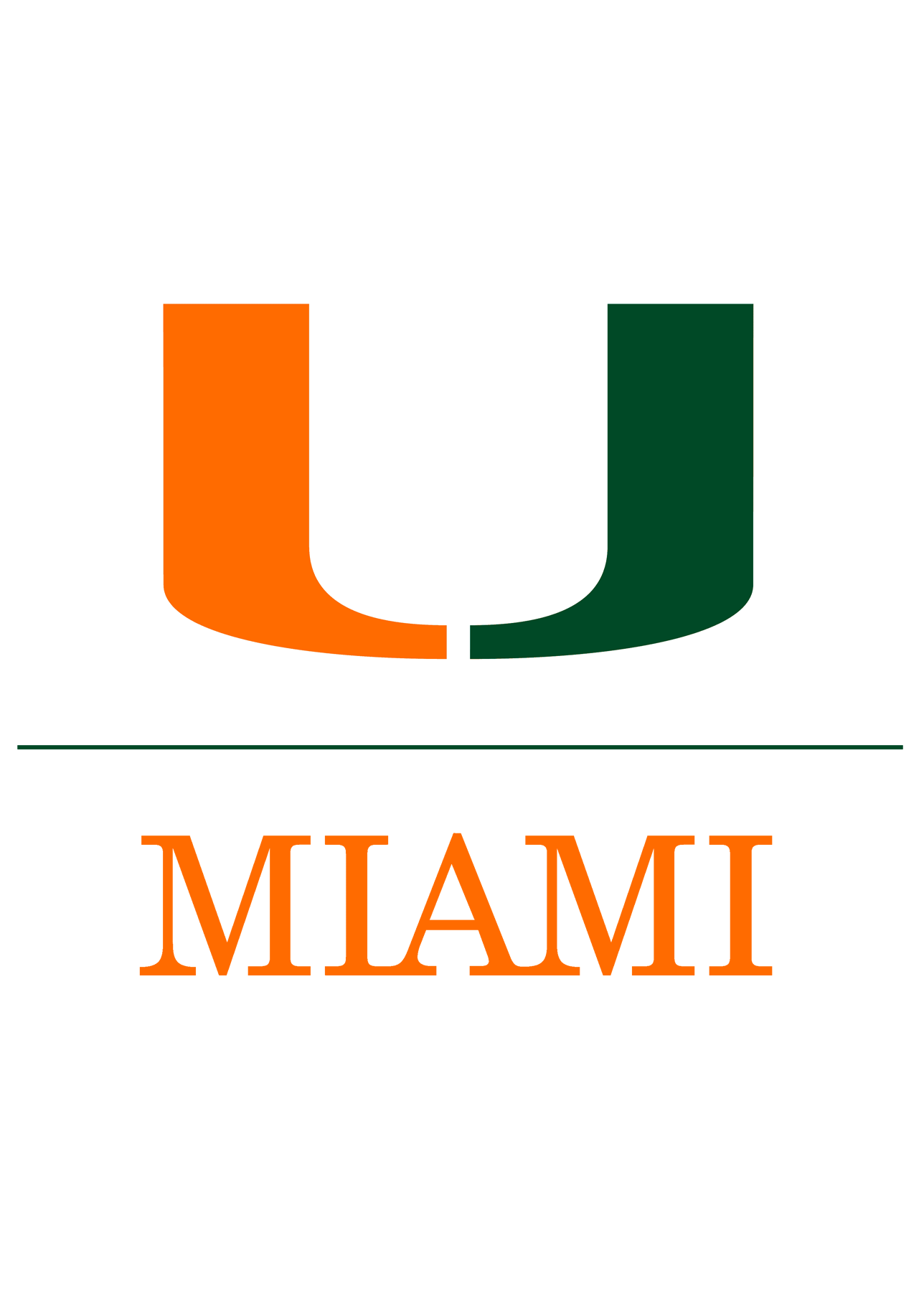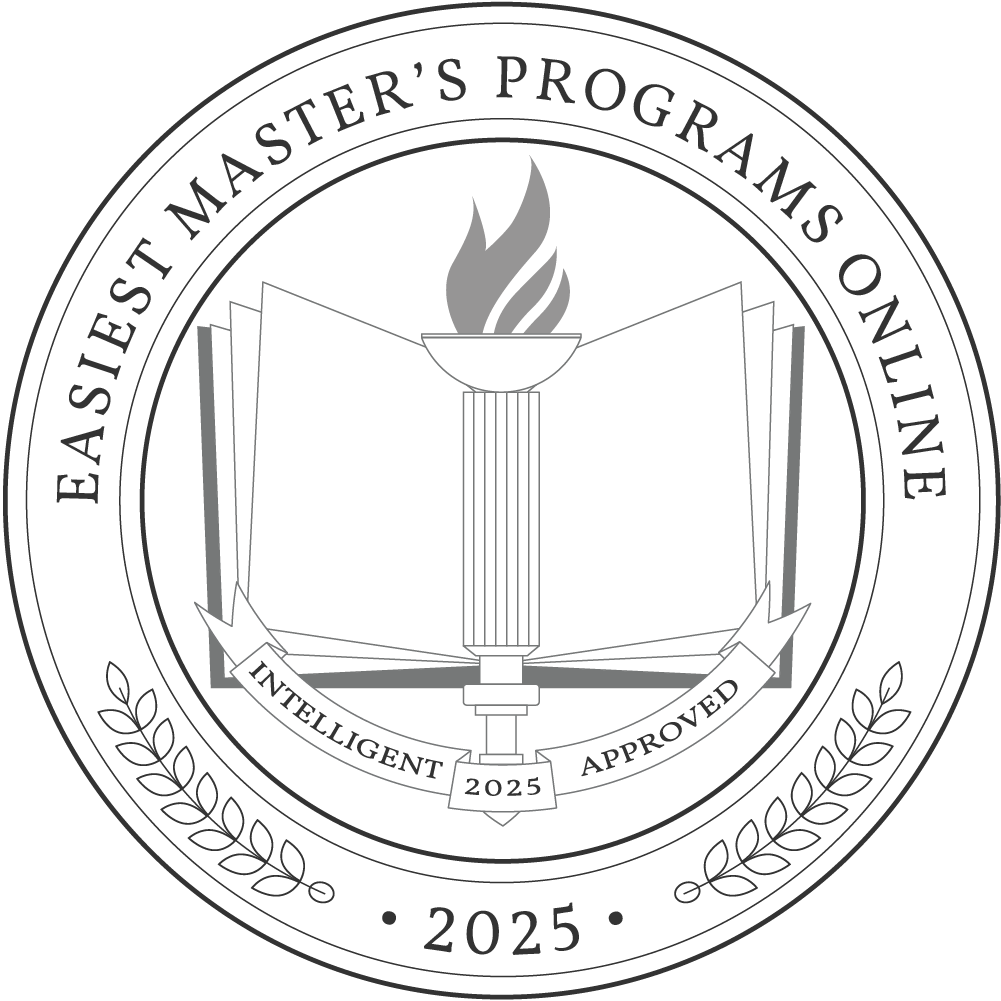Earning a master’s degree has many benefits, including increased earning potential, new job opportunities, and advanced skill development. However, if you’re juggling work, family, and other responsibilities, returning to school to earn a master’s degree may seem too challenging.
An increasing number of schools are making master’s degrees accessible by offering programs online with flexible classes and deadlines and giving students credit for knowledge gained through previous work and education experience. Intelligent.com compiled this list of the easiest online master’s degree programs to help students find the program that’s right for them. We also interviewed Blanca Villagomez, program counselor and coordinator at UC-Irvine, for her answers to frequently asked questions about online master’s programs.
Is a Master’s Degree Program Right For You?
Before beginning the process of finding an easy online master’s degree program, consider what ‘easy’ means to you. For some students, this may mean a program that fits easily into their schedule and lifestyle. These students should seek out asynchronous or self-paced programs that don’t have predesignated class meetings. Students in these types of programs can complete their assignments and lessons whenever and wherever is most convenient for them, making it easier for them to earn a master’s degree without disrupting other aspects of their lives.
Other students may find a master’s program easy if they have experience and aptitudes for the specific area of study. This will vary by student, so take some time to reflect on your previous educational experience and current skills. It’s also helpful to learn more about the specific requirements for any master’s degree programs you’re considering, such as thesis or capstone projects and internships, which can be more challenging to complete than traditional coursework.
As Villagomez reminds students, “All online degree programs require a high level of self-motivation, effective time management, and structured independent study. I recommend students create a consistent routine by identifying their optimal hours for attending classes, completing coursework, and studying to stay on track with their deadlines.”
Alternatives
Earning a master’s degree isn’t the only way for bachelor’s degree holders to further their education and improve their career outlook. Your other options include:
- Certificate programs: Many colleges offer post-baccalaureate certificate programs, which allow you to expand your skill set and earn an extra educational credential at a much lower cost than master’s degree programs (they tend to require around 10 to 20 credit hours, while master’s degree programs typically require 30 to 60 credit hours). Because they require fewer credits, they take less time to complete, and they usually don’t have extra components like internships or thesis projects. Popular graduate certificate options include human resources, finance, and nursing.
- Bootcamps: These accelerated educational programs focus on specific technology skills, such as a particular coding language or software platform. Bootcamps are an excellent option for professionals who want to become more proficient with the latest technology in their field (e.g., Bachelor’s in Marketing graduates should consider taking a digital marketing bootcamp that will teach them how to use tools like HubSpot and Google Analytics).
- Mentorships: The most affordable way to learn more about your industry is to find someone experienced, such as a former teacher or current colleague, willing to share their knowledge with you for free. By simply reaching out and asking for advice, you may be able to establish a relationship that provides you with an abundance of valuable information.
Whether you choose a master’s degree program or a less involved alternative, making any sort of effort to learn more about your occupation will likely result in better outcomes for your career.
Communications
Earning a master’s in communication will teach you to be a better communicator, a valuable skill in any industry. These programs focus on developing skills related to leadership, public speaking, negotiation, conflict resolution, strategic planning, and writing. Individuals who have a master’s degree in communications can go on to work in areas like public relations, writing and publishing, marketing, and more.
Psychology
Psychology is the study of human behavior. In a psychology master’s program, you’ll learn about the most cutting-edge research regarding emotion, intelligence, perception, brain functioning, and similar topics. It can be a rather lucrative career path — according to the BLS, psychologists earn an average salary of $92,740. There are also several areas of specialization, including forensic psychology, educational psychology, and organizational psychology. In some cases, you may be able to earn this degree in just one year. It should be noted that you will need to continue your education and earn a doctorate in psychology to practice as a licensed psychologist.
Sociology
Sociology focuses on the study of human interactions and how human behavior affects and is affected by cultural influences and social structures. A master’s in sociology can be a good fit for students who want to work in research, policy development, criminology, social work, and government. It is another degree that often leads to high-paying positions, as the BLS reports that the average annual salary for sociologists is $101,770.
Marketing
Several options are available for students interested in pursuing a graduate degree in marketing, including an MBA or a Master of Arts (MA). Students in these types of programs learn skills related to print and digital marketing strategies, social media, branding, consumer behavior analysis, and more. Employment opportunities within marketing are abundant. For example, the projected job growth rate for market research analysts is 13% through 2032, according to the BLS. Marketing professionals are needed in various industries, including business, healthcare, retail, and education.
Business administration
A Master of Business Administration (MBA) is one of the most versatile degree options, as most industries need professionals who understand business concepts. These degrees also help students develop in-demand soft skills, including communication, leadership, collaboration, creative problem-solving, time management, and more. An education in business administration can also lead to high-paying positions. If you reach the rank of chief executive, you’ll be able to enjoy an average salary of $103,840.
Why Trust Us
The Intelligent.com Higher Education Team is dedicated to providing students with independent, equitable school and program rankings and well-researched resources. Our expert-driven articles cover topics related to online colleges and programs, paying for school, and career outlooks. We use data from the U.S. Department of Education’s College Scorecard, the National Center for Education Statistics, and other reputable educational and professional organizations. Our academic advisory team reviews content and verifies accuracy throughout the year for the most current information. Partnerships do not influence rankings or editorial decisions.
- Analyzed over 2,000 national, accredited, and nonprofit colleges and universities
- 800+ rankings pages are reviewed and updated yearly
- Content is informed by reputable sources, surveys, and interviews with academic advisors and other experts
- Over 100 data points are reviewed for accuracy and quality throughout the year, including sources
How we rank schools
Our list features the easiest Master’s degree programs at top colleges nationwide. Each school featured is a nonprofit, accredited institution — either public or private — with a high standard of academic quality for post-secondary institutions.
We evaluated each school’s program on tuition costs, admission, retention and graduation rates, faculty, reputation, and the student resources provided for online students. We collected data from trusted sources like the National Center for Education Statistics, individual school and program websites, school admissions counselors, and other data sources. Then, we calculated the Intelligent Score on a scale of 0 to 100 based on the following criterion:
Academic Quality:
- Admission rate versus enrollment rate
- Retention rate of students who return after year one
- Accreditation status (regional and programmatic)
- Nonprofit status, both private and public institutions
Graduation Rate
- Overall graduation rate
- Total number of currently enrolled students, including diversity metrics
- Student-to-faculty ratio
Cost and ROI
- In-state and out-of-state per-credit tuition rates and fees
- Required credits to graduate
- Earning potential after graduation
- Availability of federal student loans, scholarships, and other financial aid options
Student Resources
- Available student services for online-only and hybrid programs
- On-campus amenities like tutoring centers and the number of libraries
Read more about our ranking methodology.
26 Easiest Online Master's Degree Programs
FiltersInstitution Type
Status
- Intelligent Score
- Alphabetically By University Name
- Acceptance Rate
- Enrollment
- In-state Graduate Tuition
- Out-of-state Graduate Tuition
- In-state Undergraduate Tuition
- Out-of-state Undergraduate Tuition

Wilmington University
Intelligent Score: 99.42In-state: $11,430
Out-of-state: $11,430
In-state: $8,784
Out-of-state: $8,784
SAT: N/A
ACT: N/A
$537
Online
Middle States Commission on Higher Education
30-55

Southern New Hampshire University
Intelligent Score: 99.24In-state: $9,600
Out-of-state: $9,600
In-state: $18,810
Out-of-state: $18,810
SAT: N/A
ACT: N/A
$637
Online
New England Commission of Higher Education
30-45

Liberty University
Intelligent Score: 98.13In-state: $14,791
Out-of-state: $14,791
In-state: $7,935
Out-of-state: $7,935
SAT: 1040-1250
ACT: 21-29
$565
Online
Southern Association of Colleges and Schools Commission on Colleges
30-60

East Carolina University
Intelligent Score: 97.96In-state: $4,452
Out-of-state: $20,729
In-state: $4,749
Out-of-state: $4,749
SAT: 1020-1170
ACT: 19-24
Resident: $283
Non-Resident: $1,014
Online
Southern Association of Colleges and Schools Commission on Colleges
30-47

Arizona State University
Intelligent Score: 97.09In-state: $10,710
Out-of-state: $28,800
In-state: $11,720
Out-of-state: $11,720
SAT: 1100-1320
ACT: 21-28
$576
Online
Higher Learning Commission
30-60

University of North Texas
Intelligent Score: 95.84In-state: $8,295
Out-of-state: $18,111
In-state: $6,350
Out-of-state: $6,350
SAT: 1050-1240
ACT: 20-27
Resident: $353
Non-Resident: $813
Online
Southern Association of Colleges and Schools Commission on Colleges
30-36

Western Governors University
Intelligent Score: 95.78In-state: $6,380
Out-of-state: $6,380
In-state: $7,500
Out-of-state: $7,500
SAT: N/A
ACT: N/A
$425 - $550
Online
Northwest Commission on Colleges and Universities
30-38

Ball State University
Intelligent Score: 95.11In-state: $9,482
Out-of-state: $26,470
In-state: $9,328
Out-of-state: $9,328
SAT: N/A
ACT: N/A
In-State: $464
Out-of-State: $696
Online
Higher Learning Commission
30-39

Weber State University
Intelligent Score: 95.00In-state: $5,090
Out-of-state: $15,272
In-state: $7,935
Out-of-state: $7,935
SAT: N/A
ACT: N/A
Resident: $557
Non-Resident: $1,601 - $1,645
Online
Northwest Commission on Colleges and Universities
30-45

Sam Houston State University
Intelligent Score: 94.37In-state: $5,856
Out-of-state: $15,672
In-state: $5,765
Out-of-state: $5,765
SAT: 970-1120
ACT: 18-23
$320
Online
Southern Association of Colleges and Schools Commission on Colleges
30-42

Arkansas State University
Intelligent Score: 93.91In-state: $5,232
Out-of-state: $10,800
In-state: $4,986
Out-of-state: $4,986
SAT: 1000-1220
ACT: 20-26
$340 - $514
Online
Higher Learning Commission
30-63

University of Maryland Global Campus
Intelligent Score: 92.81In-state: $8,824
Out-of-state: $34,936
In-state: $13,158
Out-of-state: $13,158
SAT: 1270-1480
ACT: 30-34
In-State: $534 - $694
Out-of-State: $659 - $694
Online
Middle States Commission on Higher Education
30-60

Faulkner University
Intelligent Score: 91.73In-state: $21,000
Out-of-state: $21,000
In-state: $10,350
Out-of-state: $10,350
SAT: 1020-1175
ACT: 18-23
$475 - $675
Online
Southern Association of Colleges and Schools Commission on Colleges
30-60

The University of Texas at El Paso
Intelligent Score: 89.88In-state: $11,448
Out-of-state: $40,032
In-state: $12,028
Out-of-state: $12,028
SAT: 1210-1470
ACT: 26-33
Resident: $481 - $509
Non-Resident: $1,009 - $1,037
Online
Southern Association of Colleges and Schools Commission on Colleges
30-48

Pennsylvania Western University
Intelligent Score: 88.07In-state: $28,700
Out-of-state: $33,322
In-state: $31,723
Out-of-state: $31,723
SAT: 950 - 1070
ACT: 20 - 26
Resident: $516
Non-Resident: $526
Online
Middle States Commission on Higher Education
30-60

Valdosta State University
Intelligent Score: 86.75In-state: $4,371
Out-of-state: $15,426
In-state: $4,572
Out-of-state: $4,572
SAT: 990-1140
ACT: 19-23
$270 - $757
Online
Southern Association of Colleges and Schools Commission on Colleges
30-39

Western Kentucky University
Intelligent Score: 86.28In-state: $10,802
Out-of-state: $26,496
In-state: $12,140
Out-of-state: $12,140
SAT: 980-1180
ACT: 19-26
$707
Online
Southern Association of Colleges and Schools Commission on Colleges
30-60

University of Miami
Intelligent Score: 84.78In-state: $52,080
Out-of-state: $52,080
In-state: $45,288
Out-of-state: $45,288
SAT: 1250-1420
ACT: 28-32
$1,265 - $2,530
Online
Southern Association of Colleges and Schools Commission on Colleges
30-42
Online Master’s Degree Programs Frequently Asked Questions
Should I get a master's degree online or in person?
This decision ultimately depends on the student’s individual needs and what will make earning their master’s easiest for them.
Says Villagomez, “Online programs generally offer a combination of asynchronous and synchronous modalities, so expectations and pacing can vary greatly across courses. With asynchronous courses, interactions with professors and classmates can be limited and may require more effort to stay connected. Meanwhile, synchronous courses can facilitate engagement more easily. Regardless of modality, all online degree programs require a high level of self-motivation, effective time management, and structured independent study.”
Students who thrive in interactive learning environments and need additional accountability may be better suited to an in-person program or a hybrid curriculum that includes online and in-person instruction.
How do I apply to an online master's degree program?
The application and eligibility requirements for master’s programs vary by institution and program. Students should consult with an admissions counselor at the schools they’re considering for the most accurate information.
“After conducting research on the degree programs and schools that are the best fit for them, students should have a strong sense of the admission requirements for those programs,” Villagomez says. “With all these requirements, it’s important for students to stay organized with a comprehensive and detailed checklist to track their progress, submit all required materials, and meet deadlines. I encourage students to decide what systems help them organize the application requirements and track their progress for each school.”
In general, a master’s degree application consists of:
- Application and fees
- Official transcripts from all undergraduate schools attended
- Letters of recommendation from faculty, employers, or colleagues
- Personal statement or essay
- Resume or CV
- GRE or GMAT scores
Some programs may have specific requirements regarding undergraduate degree or coursework, minimum GPA, or professional experience. If there are specific application deadlines, submit all application materials promptly to ensure your decision, and potentially your enrollment, is on time.
How much does an online master's degree cost?
According to the Education Data Initiative, the average cost of a master’s degree in the U.S. is $59,684. However, several factors influence what an individual student will pay for their master’s degree. For the most accurate information on the cost of a specific program, students should speak to a financial aid counselor at the institution.
A key factor is whether a school is public or private. Tuition tends to be highest at private schools. However, many public universities charge different tuition rates for in-state and out-of-state students. Online students can inquire whether tuition is the same regardless of where they reside.
When creating a budget for an online master’s degree, Villagomez reminds students to factor in costs for internet service, reliable hardware, and any special software they may need.
How long does it take to complete an online master's degree?
The duration of an online master’s degree program depends on a few factors, including the total number of credits required and the pace at which students progress through the program. Most online master’s degree programs require 30-60 credits and take one to two years of full-time or two to three years of part-time study.
Some schools offer accelerated master’s programs, in which students complete all required coursework in a compressed time frame. These programs are usually available to students with previous educational or professional experience in their area of study. Other master’s programs are self-paced, meaning students can complete their degree in the best time frame for them.
Is earning a master's degree worth it?
There are many benefits to earning a master’s degree. The BLS reports that the median weekly earnings are $1,737 for individuals with a master’s degree and $2,206 for individuals with a professional degree. By comparison, the median weekly earnings for those with only a bachelor’s degree are $1,493.
Having a master’s can open up new job opportunities, particularly in fields like social work, counseling, business, and education, where advanced degrees are required for specific roles. For individuals who already have a bachelor’s degree but want to switch career paths, a master’s degree can be a more expedient way to pivot than earning another undergraduate degree.
However, it’s important to remember that students only get as much out of an educational experience as they put into it. Even the easiest online master’s programs require a commitment of time and energy, so before enrolling in a program, make sure you have the capacity to focus on coursework and assignments to get the most out of it.


